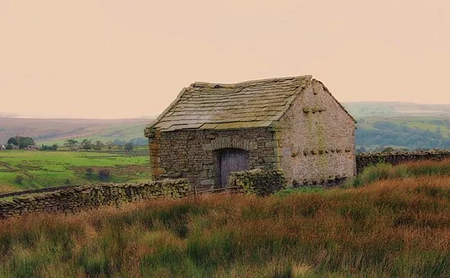CHeriScape
CHeriScape integrates different scientific disciplines, leading to innovative partnerships

Bas Pedroli is one of the partners in “Cultural Heritage in Landscape” (CHeriScape), a landscape-focussed international network funded as part of the transnational pilot call of the European Joint Programming Initiative on Cultural Heritage and Global Change. In total, 10 projects received funding for international networking activities, bringing together scientists from 13 European countries.
“Traditionally, cultural heritage looks mainly at conservation and preservation. In recent years, more attention is given to the environmental and societal context of the features to be ‘cherished’. The project CHeriScape integrates tangible and intangible heritage values, combining physical geography with humanities and social sciences. It is a way of looking that helps us to understand our place in the world, and one which transcends disciplinary boundaries.”
At the heart of the CHeriScape initiative is an integrated series of five conferences across various countries in three years’ time, each to explore a different aspect of the importance of ‘landscape as heritage’ to society.
“The workshops are very interactive in nature, with open spaces or ‘world cafe’s’ as settings in which active debate and interaction takes place. This method has proven to work well. When you ask someone about their personal relationship with the landscape, it normally yields highly spontaneous responses. People recount how they used to enjoy the surroundings in which they grew up, and how the landscape that was so dear to them has changed. It has (subconsciously) formed their identity.”
The objective of the workshops is to define a European research agenda around landscape and heritage. Both at EU as well as at national level (in the Netherlands), landscape policy as such is no longer a priority, even though different sector policies (agriculture, transport, climate and energy) all have an impact on the landscape. For Wageningen University, the project has resulted in a new partnership with the Cultural Heritage Agency, an organisation that is not eligible for this type of funding. They partly even funded their own contribution because they see added value in participating in this project. Pedroli continues: “both parties value each other’s strength and specific role. By working together it is envisaged that heritage and landscape will be addressed at the interface of three different angles: research, policy and practice, in order to raise more awareness about the meaning and value of the dynamic heritage values of our European landscape for the sake of its sustainable future. This definitely deserves to be better known at national and EU level.” ...
How can the JPI’s benefit scientists?
“At European level, the JPI’s have created new networks and fora, fostering exchange between persons who are all involved in research policy and funding in their own countries. Europe will benefit from this. Scientists will benefit from this. If we as scientists are to work together at European level, it is a good thing that the decision-taking bodies as well as the funding agencies get to know each other and learn from each other as well.”
Researchers in the spotlight with projects funded through jointly programmed calls
One of the aims of joint programming is aligning research & research funding and this usually results in a joint call to which proposals can be submitted. In a series of interviews, researchers from Wageningen University and Research present their granted projects from such joint calls.
